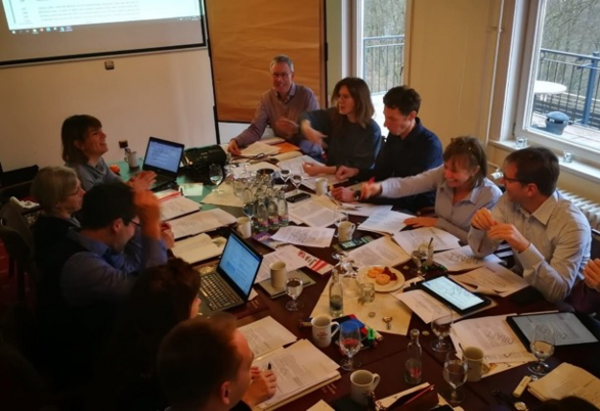Nature Moves Us: Green Cities, Active Living: upcoming EUKN Policy Lab for Slovenia
Climate change, air pollution, and biodiversity loss are no longer solely environmental concerns: they have become pressing public health challenges. The Planetary Health perspective highlights the deep interconnection between human health & wellbeing and the ecosystems that sustain life. As urbanisation accelerates and ecological stressors intensify, cities play a crucial role in shaping both ecosystemic and human health. Equitable access to nature and the integration of green-blue infrastructure into city planning are essential to improving quality of life, reducing health inequalities, and fostering both individual and community resilience.
Low levels of health-enhancing physical activity (HEPA) combined with increasing sedentary behaviour have come to represent a growing public health concern in cities. How can restoring urban nature help reverse this trend? How can nature-based solutions (NBS) help encourage active lifestyles and active travel, such as walking and cycling? These are some of the questions we will address in the Policy Lab ‘Nature moves us: Green cities active living’, diving into know-hows, strategies, practices for strengthening the urban nature-health nexus.
Organised by the EUKN in collaboration with the Slovenian Ministry of Natural Resources and Spatial Planning Slovenian (MNVP), this Policy Lab will explore how embedding NBS into city strategies can support the health-environment nexus and contribute to more liveable cities and healthier, more active urban lifestyles, in line with HEPA Europe’s 24-hour movement paradigm.
What to expect:
- Insights from pioneering European initiatives linking green infrastructure to physical activity and well-being;
- Expert discussions on embedding NBS and green-blue infrastructure into urban policy to create cohesive, health-promoting environments;
- Exploration of the 24-hour movement paradigm –how city design can encourage active living, quality sleep, and reduced sedentary time;
- Exchange between urban planners, public health professionals, and researchers to identify pathways for cross-sectoral collaboration and policy alignment.
Key objectives:
- Strengthen collaboration between spatial planning and public health sectors.
- Promote innovative NBS strategies in city planning.
- Showcase European case studies on inclusive nature-positive spaces.
- Explore the 24-hour movement paradigm championed by HEPA Europe.
- Identify opportunities to apply Planetary health principles across Europe.
Date & Venue: 12 January 2026, M-Hotel, Ljubljana.
Format: Morning plenary presentations and discussions (with English<>Slovene interpretation) and afternoon workshop (no interpretation, English only)
Stay tuned for updates on the programme and registration!
More articles

Lea Scheurer on…The New Leipzig Charter: a personal perspective...
Lea Scheurer on…The New ...
Lea Scheurer on…The New Leipzig Charter: a personal perspective
'Building a personal bond with a political declaration isn't the most natural thing for a young professional. However, when it comes to the (New) Leipzig Charter, it's what has happened to me.'

CONEXUS Factsheet: Integrating intersectionality into urban NbS...
CONEXUS Factsheet: Integrating...
CONEXUS Factsheet: Integrating intersectionality into urban NbS
As part of the CONEXUS project, the EUKN contributed to this factsheet that provides a framework to address socio-environmental inequities through intersectionality.

Daniela Patti on… urban resilience in the face of pandemics...
Daniela Patti on… urban ...
Daniela Patti on… urban resilience in the face of pandemics
The EUKN interviewed Daniela Patti, Director of Eutropian, about what the COVID-19 outbreak is teaching us about urban resilience as lived reality.